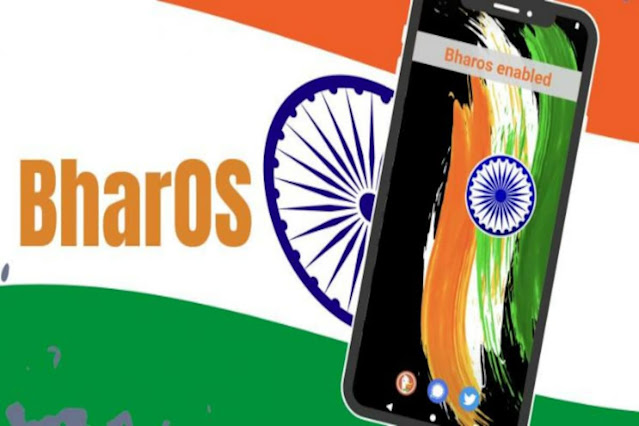What is BharOS?
BharOS’s endorsement by the government not only signals
India’s ambitions to have a localized competitor to Silicon Valley operating
systems, but also ensures that competitors have a fair chance to succeed
against these heavyweights.
Although there are many unanswered questions about BharOS and whether it can emerge as a true competitor to Android, it is clear India is taking a page out of China’s playbook in developing its own local tech ecosystem to fuel the economy. We explain India’s efforts to develop its own operating system and how it could help put a check on Big Tech, even if the OS fails to challenge the Google-Apple duopoly in the mobile ecosystem.
BharOS is not a
distinctive indigenous OS
BharOS is not very distinct from Android and iOS. Although
there is no information publicly available on BharOS and its key features, it
appears to be less of an alternative and more of a fork version of Android.
Introducing a completely new operating system and forking
Android are two different things. In forking, a developer can copy the source
code of a programmed, app, or even operating system and create a new project
without violating copyright laws. Google’s Android has been an open-source
project ever since it debuted in 2008. Anyone can use it, use the source code,
and create their own fork or alternate version. Amazon’s Fire OS, for example,
is essentially a fork version of Android.
But a forked version loses access to the Google Play Store — the primary way most Android users download millions of apps on their devices and Google services. Fire OS, for instance, has Amazon’s own App Store.
So an Indian tech company can fork Android and develop a
non-Google OS. But that operating system will likely have more bugs and will be
more susceptible to hacking since a “forked” version of Android won’t ship with
Google Play Protect, software that prevents malware from infiltrating Android
devices. However, on Wednesday, Google announced that in line with the CCI
ruling in India, it will allow other manufacturers to build forked Android
variants. So technically a BharOS will be able to run with Google nod and with
access to some of its services.
When HarmonyOS, the operating system Huawei created, lost
access to US technologies, it could no longer use Google Mobile Services (GMS),
Google’s suite of mobile applications which are licensed separately to
manufacturers. And this is why Huawei ships its smartphones globally with
in-house Huawei Mobile Services.
Samsung, Xiaomi and Nothing all offer their take on the core Android experience with unique skins but the devices they ship come with GMS and Google Play Protect, giving them access to years of security updates from Google.
Also Read- How to Install Android Apps on Windows 11 in simple way
Android-iOS duopoly
is strong as ever
But developing a brand new operating system on its own and
building a serious competitor to Android or iOS could be a mammoth task. Not
only does it need infinite resources to develop a brand new operating system
but also robust developer support. Perhaps the reason why the iPhone became so
dominant in the first place was due to the App Store which went live on the
device in 2008. Apps went mainstream instantly, becoming accessible to iPhone
users through a clean and friendly storefront.
As the popularity of the App Store grew, it gave rise to the
Ubers and Spotifys of the world. Apple didn’t invent the App Store, but it
brought every developer under one roof which led to the beginning of the mobile
ecosystem as we know it today. Google also jumped into the app bandwagon but
unlike Apple, the company allowed third-party stores and sideloading. Today,
Android is the most dominant mobile operating system with a market share of
71.8 per cent.
Both Android and iOS offer consumers a number of features
and benefits, but they have also locked users into their respective ecosystems.
There is no third or fourth mobile operating system that exists today,
protecting the present duopoly over mobile devices. Attempts have been made by
Microsoft, BlackBerry, and even Samsung to create mobile operating systems to
compete with Android and iOS, but no one has been able to dominate our digital
lives the way Apple and Google have. In the case of Microsoft, Windows Phone
was a radically different OS and ahead of its time, unlike Android, but the
operating system failed spectacularly due to its inability to attract
third-party developers.
Apps will be the
challenge despite India’s own tech ecosystem
In recent years, India has stepped up the ladder in building
its tech landscape. But it hasn’t grown as big as China’s to create
alternatives to Google, Facebook, and Amazon. Even if India develops an
alternative to Android and provides its own App Store, it can’t promise a flow
of apps from local developers like China does on its many Android app stores.
In India, for instance, Gmail is the default email service
for most users and if the App Store India develops does not carry Google apps,
no one would want to use a homegrown OS. Also, Google or Meta will be unlikely
to port their first-party apps onto a localized App Store for obvious reasons.
Is BharOS based on Android?
BharOS is an Android fork: Firstly, the "indigenous" OS is not really all that indigenous as it appears to be based on Android's Open Source Project (AOSP). Using AOSP, anyone and everyone can build custom variants of Android. These versions are usually referred to as Android forks. BharOS is one such Android fork.
BharOS is a mobile operating system designed by IIT Madras. It is an Indian government-funded project to develop a free and open-source operating system (OS) for use in government and public systems. It is being called as a fork of AOSP.


